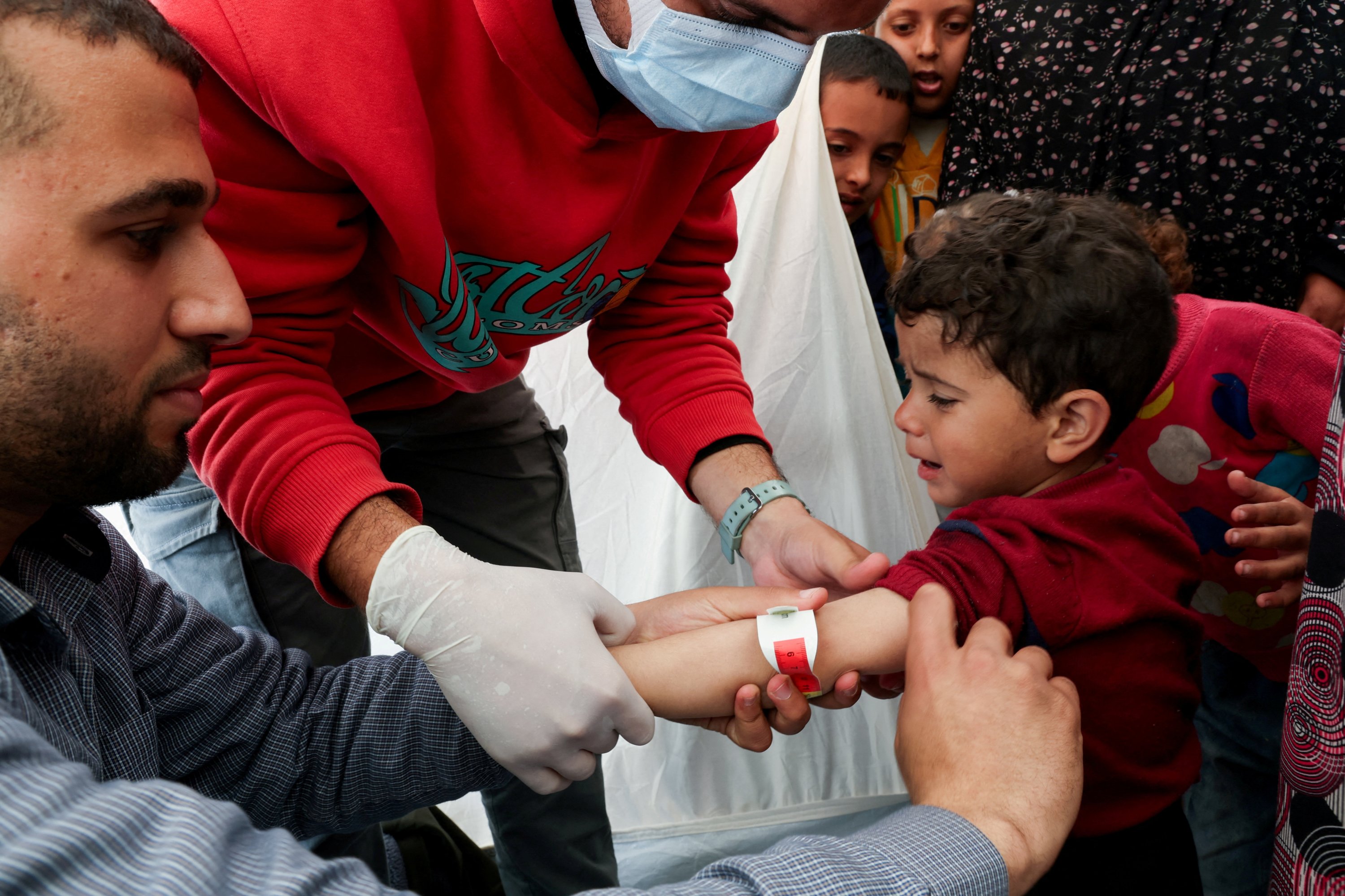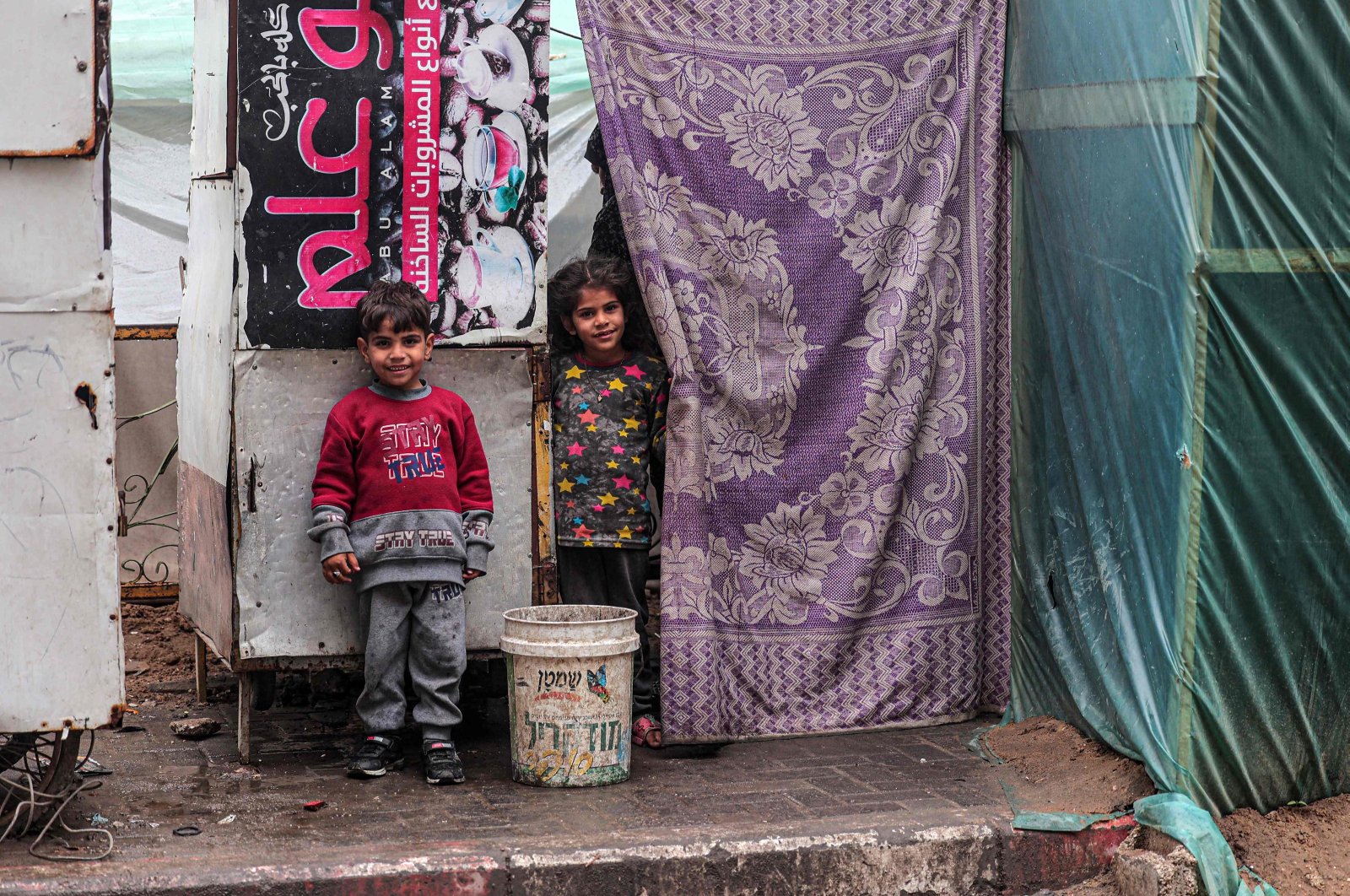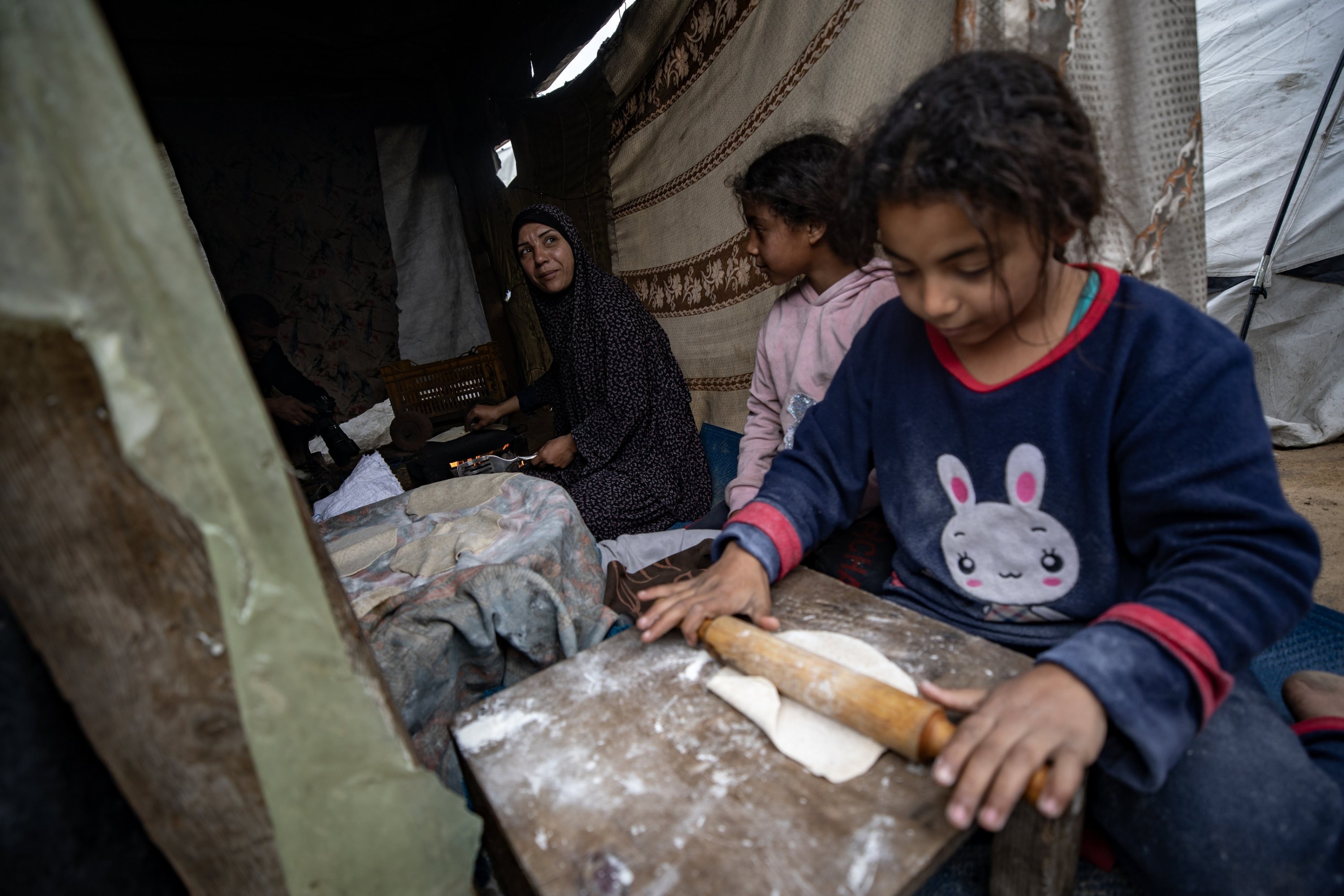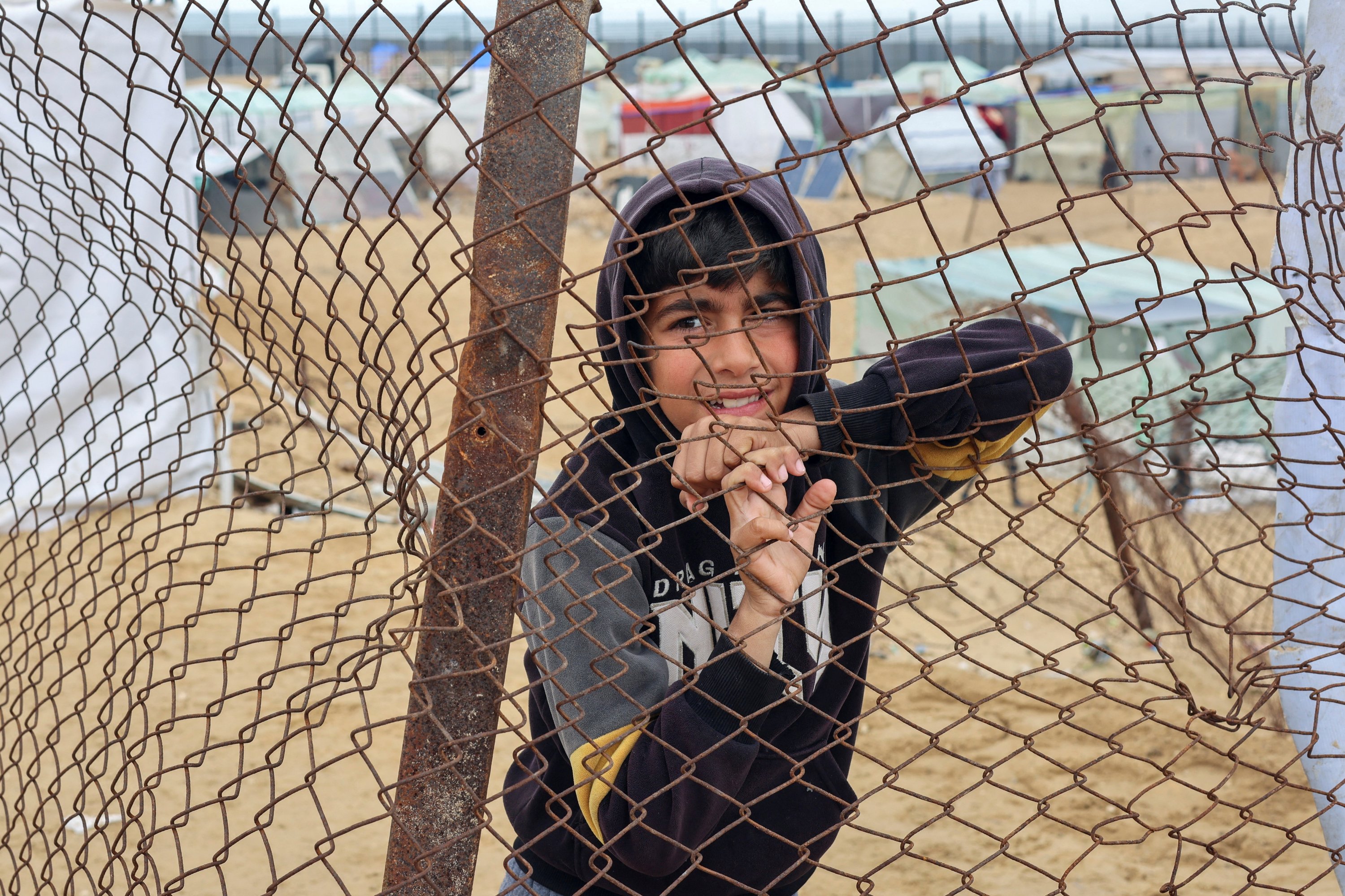The planned offensive, which now looks even more likely, will coincide with the Islamic holy month of Ramadan when the faithful observe daylong fasting.
With prospects for truce talks dimmed, the U.S. and other governments, as well as the United Nations, have issued increasingly urgent appeals to spare Rafah, where over a million Palestinians have sought shelter from Israel’s war.
The Israeli government says the city on the Egypt border is the last remaining stronghold in Gaza of the Palestinian resistance group Hamas.
But it is also where three-quarters of the displaced Palestinian population has fled, taking shelter in sprawling tent encampments without access to adequate food, water or medicine.
“The world must know, and Hamas leaders must know – if by Ramadan our hostages are not home, the fighting will continue everywhere, including the Rafah area,” Benny Gantz, a retired military chief of staff, told a conference of American Jewish leaders in Jerusalem on Sunday.
“Hamas has a choice. They can surrender, release the hostages and the civilians of Gaza can celebrate the feast of Ramadan,” added Gantz, a member of the three-person war Cabinet.
Ramadan, the Muslim holy month, is expected to begin around March 10.
Gantz said the offensive will be carried out in coordination with American and Egyptian partners to “minimize the civilian casualties as much as possible.”
But where Palestinians can go after four months of war have flattened vast swathes of the Strip remains unclear.
‘Total victory’
For weeks, international mediators have sought to broker a truce-for-hostages deal that would pause fighting for six weeks.
Israeli Prime Minister Benjamin Netanyahu has played down the possibility of an impending breakthrough, calling Hamas’ demands “delusional.”
Even if a deal is struck, he insists the campaign to eliminate Hamas from Gaza will not be completed until clearing Rafah.
“Deal or no deal, we have to finish the job to get total victory,” he said at the Jerusalem conference Sunday.
With international pressure piling on Israel, the U.N.’s top court will open a week of hearings from Monday examining the legal consequences of the country’s 57-year occupation of Palestinian territories.
The hearings, requested by the U.N. General Assembly, are separate from South Africa’s high-profile case accusing Israel of committing genocide in its current Gaza offensive.
At the U.N.’s Security Council, the United States signaled it would veto the latest U.N. draft resolution seeking an immediate cease-fire should it come to a vote this week.
Ambassador Linda Thomas-Greenfield said the resolution would jeopardize the ongoing truce talks, as well as the broader aim of “an enduring resolution of hostilities.”
Western governments have increasingly pushed for unilateral recognition of a Palestinian state to be part of that wider peace process, but Israel’s government Sunday unanimously adopted a declaration rejecting such recognition.
“After the terrible massacre of Oct. 7, there can be no greater reward for terrorism than that and it will prevent any future peace settlement,” Netanyahu said.
Hamas has meanwhile threatened to suspend its involvement in any cease-fire negotiations unless relief supplies reach Gaza’s north, where aid agencies have warned of looming famine.



